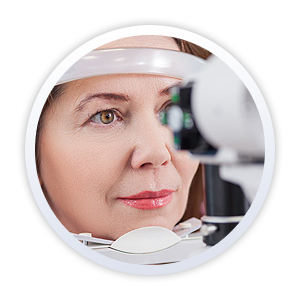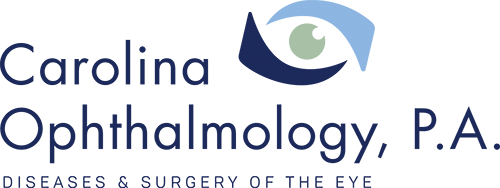Drs. Mark Joseph and Jonathan Fritz offer tips to help people considering whether to have the procedure.
Nearly 25.7 million Americans over age 40 have cataracts, and the number is projected to increase to 45.6 million by 2050.[i] While the only way to remove cataracts – a clouding of the eye’s lens – is surgery, the right time to have surgery depends on the individual patient. In support of Cataract Awareness Month, Carolina Ophthalmology and the American Academy of Ophthalmology are offering tips for those who have been diagnosed with cataracts as they consider whether to have surgery to remove them and when.
Cataracts occur as part of the body’s natural aging process. Being diagnosed with cataracts does not always mean that surgery is immediately required. In the early stages, cataracts may not change vision significantly and minor changes may be improved with prescription glasses. But as the cataracts continue to mature over time, they may cause vision loss that can interfere with daily life.
Although the prospect of cataract surgery can be intimidating, the procedure itself is the most common elective surgery among Medicare beneficiaries in the United States. Multiple studies have demonstrated its association with improved quality of life, reduced risk of falling and fewer car crashes.[ii],[iii],[iv] In addition, one study found that those who had cataract surgery had a 40 percent lower long-term mortality risk than those who did not.[v]
The following four questions, from Carolina Ophthalmology and the American Academy of Ophthalmology, are designed to help people considering if and when cataract surgery is right for them:
Are your cataracts impacting your daily or occupational activities?
Symptoms of cataracts include dim, blurry, or yellowed vision and can even double vision in an eye. The lack of contrast and clarity can be difficult for those who need clear vision for work or driving, as well as for those who enjoy hobbies like reading, cooking, or sewing.
Are your cataracts affecting your ability to drive safely at night?
Cataracts can cause halos around lights and difficulty seeing in low-light settings, impacting the ability to safely drive at night. Advanced cataracts can even cause enough vision loss to fail the vision test required for a driver’s license.
Are your cataracts interfering with the outdoor activities you enjoy?

Cataracts can also increase sensitivity to glare. This can be especially troublesome for those who enjoy skiing, hiking, and a number of other outdoors activities. They can also cause visual differences from one eye to the other, which can affect distance vision that is needed for golf and other sports.
Can you manage your cataracts in other ways?
Those who decide to put off cataract surgery can make the most of their vision with a few simple tools, such as incorporating brighter lighting and contrasting colors in the home. Polarized sunglasses and a wide-brimmed hat can reduce glare, while magnifying lenses can make reading easier.
“A cataract is the normal aging process of the lens in the eye. If we live long enough we will all eventually develop a cataract.” said Mark Joseph, M.D., a cataract and cornea surgeon at Carolina Ophthalmology. “If cataracts aren’t disrupting your life, you can probably wait and have surgery when they really start to bother you. But for those who have started to notice decreased vision or glare, cataract surgery may be one the best things they can do for themselves,” added Jonathan Fritz, M.D., a cataract surgeon at Carolina Ophthalmology.
Cataract surgery is commonly recommended when the outcome is expected to improve vision or if the cataract obscures the visualization and treatments of other eye diseases. Those considering cataract surgery should schedule an appointment with an ophthalmologist to discuss how cataracts are affecting their daily lives. Learn more about cataract risks, symptoms and treatments at http://www.geteyesmart.org/eyesmart/diseases/cataracts/index.cfm.
About Carolina Ophthalmology, PA:
Carolina Ophthalmology was founded in 1980 and since that time has grown to become one of the foremost ophthalmic centers in the country with offices located in Hendersonville, Asheville and Columbus, and satellite locations in Franklin and Spruce Pine, NC. Collectively, our doctors have over eighty (80) years of experience serving the people of Western North Carolina. To schedule an appointment with one of their qualified surgeons or for more information, please call 800-624-6575 or visit their website at www.carolineyemd.com.
[i] http://forecasting.preventblindness.org/
[ii] http://www.ncbi.nlm.nih.gov/pubmed/22978526?dopt=Abstract
[iii] http://www.ncbi.nlm.nih.gov/pubmed/22851116
[iv] http://www.ncbi.nlm.nih.gov/pubmed/22273356
[v] http://www.aaojournal.org/article/S0161-64201300143-7/fulltext




